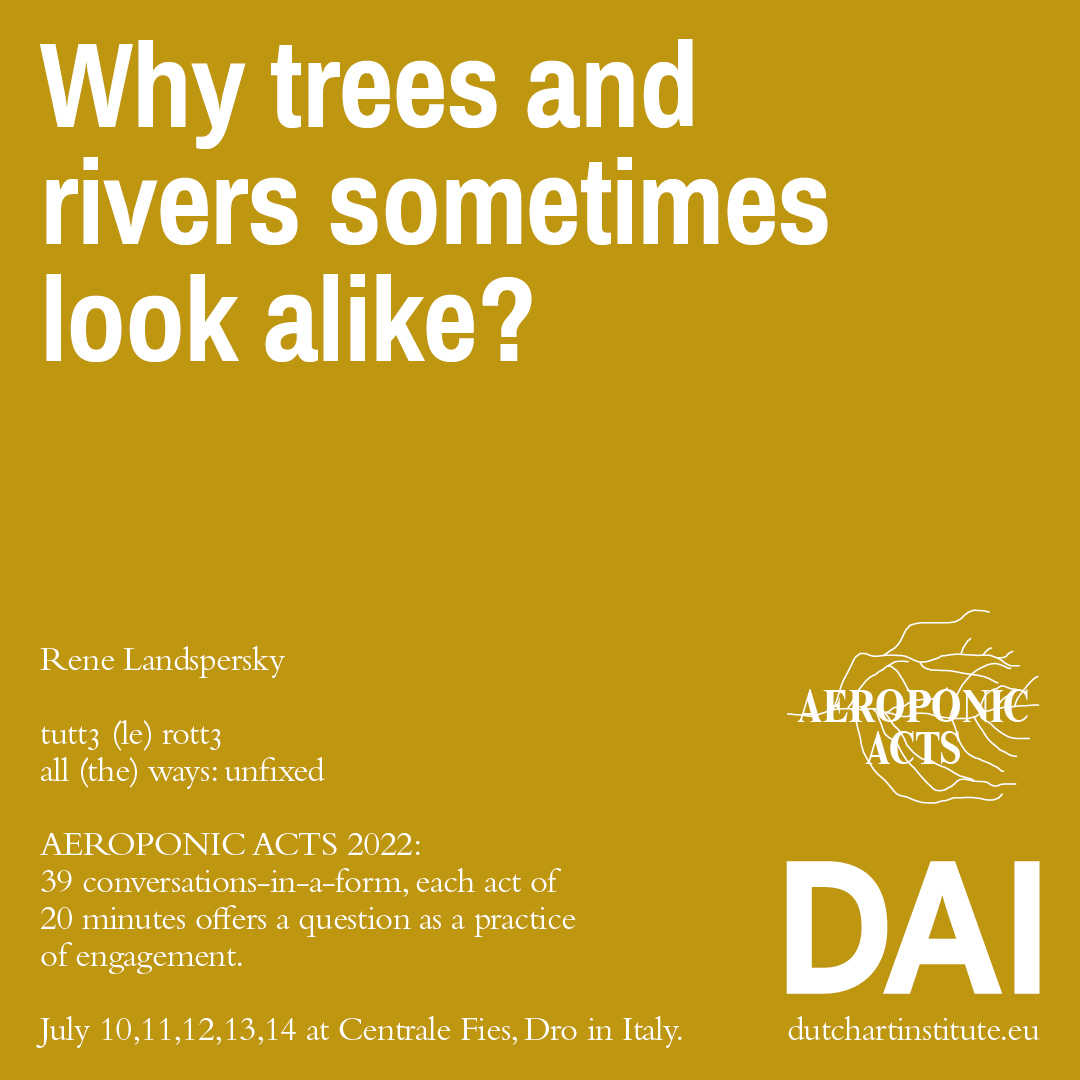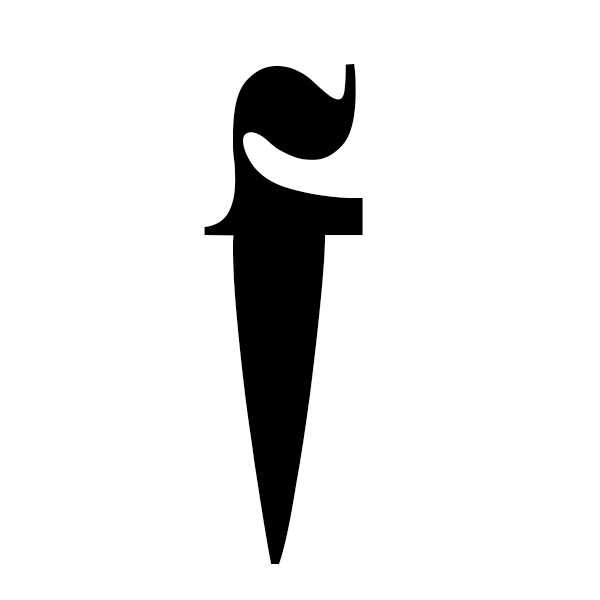Rene Landspersky: A tree is a river floating towards the sky.
‘Aeroponic’ – root systems nourished by air – Acts is the name given to the nomadic Dutch Art Institute’s final Kitchen presentations. Each participant addresses one question, as a practice of engagement.
Here you will find the documentation of Rene Landspersky's presentation as filmed by Baha Görkem Yalım. The written report is by Hubert Gromny and it includes a summary of the comments by esteemed guest respondents.
A tree is a river floating towards the sky.
Rene's question: Why trees and rivers sometimes look alike?
Rene's introduction: The human body usually has 665 muscles that contract, sag, keep us alive and carry us. There is no talking, writing, reading, or listening without them. Muscles are matters, produce matters and matter. When the muscles in our mouths narrate about memory, the pen becomes the sixth finger designating the perception’s origin.
soundscape #1: aka autopilot
Soundscape #2: Chisato Ohori for fLowres festival
Hubert's report: Long roll of paper is unfold across the room. On one side of the paper there is a jar with paint and brush on the other guitar is lying. Pillows and chairs are distributed around for the audience, which settles in while Rene puts on an orange shirt. He plays sound from his phone, which soon continues from the speakers. It is a distorted piece of quiet melancholic music, where the voice has a leading role. It is a song barely recognisable because of the distortion. Rene takes up the brush and starts to apply the paint on the paper uttering indistinguishable sounds amplified by the microphone he is wearing. The action of painting resembles calligraphic gestures. Rene seems to be deciphering the signs he is placing on the paper and uttering words they signify more loudly. The tone of music changes to be more eerie while movements of painting become faster. Rene starts to speak about his action. The calligraphic writing is in the Korean alphabet Hangul invented by King Sejong the Great in 1446. The text written on the roll of paper is a lyric of a popular Korean song. Teacher Rene, who instructs him in learning Korean, assigned learning the song to be his homework. Rene announced that he aimed to play and sing the song, but his limited skills did not allow him to do so. It is the end of the performance.
Aziza Harmel shared a difficulty to respond to this presentation. Nevertheless she commented that the admiration of other culture and making an effort to understand it are potentially beautiful gestures. Nevertheless they demand to care about what is admired and to acknowledge the distance. Aziza made a distinction between an individual art practice and the cultural practice. To perform the holy and sacred parts of the culture, which belongs to someone else, the keys of intimacy and genuine belief are necessary. Referring to the question of the performance Aziza pointed out that acknowledging the difference is not a gesture of violence. Aziza invoked the notion of opacity from Eduoard Glissant’s writings and Denise Ferreira da Silva’s thinking about the difference without separability, as possible guides to think on the predicament presented by the piece. Through learning from these authors one can think how to go beyond the obsessions of modernity and access knowledge differently as a divine relationship. There is a possibility to understand relations with others as not separable, acknowledge the difference and love their culture by allowing it to remain opaque.
Phanuel Antwi commented on the tension, which the work created in the room and observed that the question posed for the performance offers to think of the very different aspect of this tension. The one of wellness, which trees and rivers offer to the community. Trees and rivers are muscles of the community and are an indistinguishable part providing its members with medicine, sense of being, relationship to the land, life and death. The performance is also rooted in a certain land and there is a question: what kind of offer it proposes to the audience? Phanuel pointed out that linguistics is an important component of European colonization. The performance seemed to be conceived as an act of commitment, and in this context it is important to complexify ways in which commitment is given and offered. Phanuel revealed that during watching the performance it was impossible not to pose the questions: why Rene chose another language not his own, what remains hidden through this decision and why is it hidden from the audience? Doing what was only announced—trying to perform the song could have been an entry point for something else.
Chiara Figone described the experience of the performance as wondering about and reacting to the question about the memory of the muscles and flesh. She suggested that thinking of that allows for a different kind of reflection driven by the movement inwards, which instead of practicing another language, would allow to ask why this language resonates in one's body and why this resonance is experienced as something important. This way could be a key to reach a certain understanding of what is different, understanding which is aspiring to be a knowledge, but has a more personal dimension. Chiara noted that it does not mean that one should not learn other languages, but rather that it is important to reflect on deep motivations behind a choice to learn something which belongs to others. Reflecting on deep memory inscribed in ones muscles and body, which informs the choice, would allow the motivation to be in constant transformation. Movement inwards potentially could allow to look differently at the language one has been raised with and acknowledge constant and undocumented exchange between languages.
Rene Landspersky's "A tree is a river floating towards the sky." was presented before live audience at the Centrale Fies, Dro, Italy on July 10th.
Find the overview of all 24 AEROPONIC ACTS 2022 here: tuttə (le) rottə - all (the) ways: unfixed


